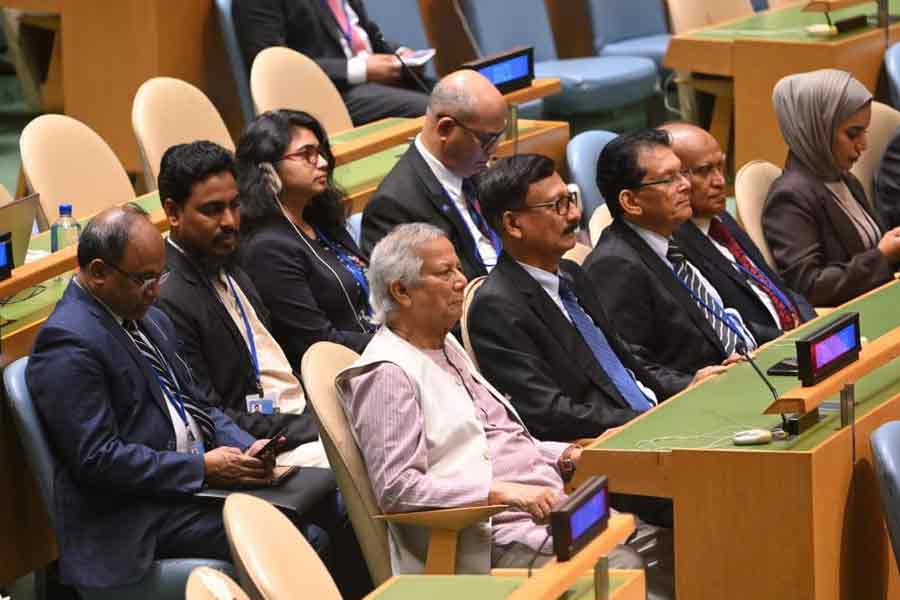Chief adviser urges world to act on Myanmar to end Rohingya crisis

Published :
Updated :

Bangladesh’s interim government Chief Adviser on Tuesday issued a stark warning that the world is ‘failing the Rohingya’, calling on the international community to mount effective pressure on Myanmar to end persecution of the minority and begin their repatriation to Rakhine.
Speaking at the opening session of the High-Level Conference on the “Situation of the Rohingya Muslims and Other Minorities in Myanmar” at the United Nations headquarters in New York, the Chief Adviser said that eight years after the 2017 campaign of violence that forced more than 700,000 Rohingya into Bangladesh, the crisis shows little sign of resolution.
“Eight years since the genocide began, the plight of the Rohingya continues. Initiatives to end the crisis are lacking. International funding faces alarming shortfalls,” he said.
Calling the crisis “a problem that originated in Myanmar and must be solved there,” he urged both Myanmar’s military authorities and the Arakan Army to immediately halt abuses and enable the “expeditious repatriation” of refugees. “It is the only solution to the crisis. It should not be held hostage to broader reforms in Myanmar,” he added.
Bangladesh, he stressed, has been forced to shoulder immense costs — financial, social and environmental — while hosting more than a million refugees in sprawling camps in Cox’s Bazar and on the island of Bhasan Char. Criminal networks, including narcotics trafficking across the Rakhine border, have further strained the country’s resources.
“Given our developmental challenges, including unemployment and poverty, we cannot afford to allow employment of Rohingyas inside Bangladesh,” he said.
The Chief Adviser presented a seven-point plan for the international community, which includes: establishing a practical roadmap for safe and dignified repatriation; applying stronger pressure on Myanmar and the Arakan Army to end violence and accept refugees, beginning with recent arrivals and internally displaced persons; deploying an international civilian presence to stabilise Rakhine; supporting confidence-building measures for reintegration of the Rohingya into local society and governance; fully funding the Joint Response Plan for humanitarian assistance; pursuing accountability and restorative justice; and dismantling the narco-economy and transnational crime networks fuelling instability.
He also argued that repatriation would cost far less than maintaining the refugees indefinitely under international protection. “The Rohingya have consistently pronounced their desire to go back home,” he said, urging the immediate return of those who recently fled renewed clashes in Rakhine.
“The world cannot keep the Rohingya waiting any longer to return home,” he concluded. “Today, let us pledge to act together to resolve the crisis once and for all. Bangladesh stands ready to extend its full cooperation to this end.”
The objectives of the High-Level Conference are to mobilise political support, sustain international attention on the crisis, review the overall situation and address its root causes, including human rights violations, and share perspectives on the ground. The forum also seeks to identify challenges faced by Rohingya and other minorities in Myanmar, as well as humanitarian concerns within the region, with the aim of proposing a comprehensive, innovative and concrete plan for a sustainable resolution of the crisis. This includes efforts to create conditions conducive for the voluntary, safe, sustainable and dignified return of Rohingya Muslims and other minority groups to Myanmar in a timely manner.
The conference was attended by UN Secretary General Antonio Guterres and representatives from different countries.
mirmostafiz@yahoo.com


 For all latest news, follow The Financial Express Google News channel.
For all latest news, follow The Financial Express Google News channel.